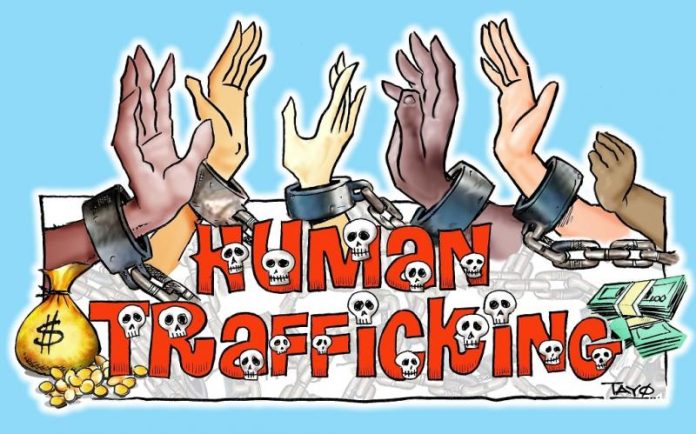In the age of moral degradation and materialistic attitude of life overshadowed by greed and lust, fractional approach to a deep-rooted infection needs complete rethinking. Educating the people about virtues and vices, promotion of moral values, instilling fear of law and strong will power at enforcement point and sincere motive for the wellbeing of the society is indispensable.
– Mohammed Atherulla Shariff
The National Crime Records Bureau (NCRB) has horrifying data about human trafficking in today’s civilized world and a strong government machinery. Human trafficking in India, although illegal under the law, remains a significant problem. People are frequently illegally trafficked for the purposes of commercial sexual exploitation and forced/ bonded labour. Men, women and transgenders have all been exploited by trafficking, most of the victims being children and women. About 40 percent of the overall victims are children and six children go missing once an hour as per the data by NCRB.
Volatile Victims
It was observed in a workshop on Human Trafficking Laws, Roles and Responsibilities of Stakeholders held in Bangalore recently, that most victims of human trafficking hailed from weaker economic sections (70 percent due to debt bondage), oppressed communities (87 percent) and rural areas. Activists dedicated to eliminating human trafficking and rehabilitating the victims into the social mainstream attribute various socio-political reasons and a concerted network of traffickers for its prevalence. Even after raids on brothels and carrying out rescue operations, the activists spoke about the difficult eventualities for people from Dalit sections.
“When they are rehabilitated into the social mainstream, controversies come to the fore the moment people get to know their background,” it was lamented. The workshop was jointly conducted by the District Legal Services Authority and Mukti Alliance Against Human Trafficking and Bonded Labour.
Legal Hurdles
Senior Civil Judge Ravi Kumar, one of the speakers, delved into the potential legal hurdles while dealing with cases of human trafficking. Citing an example where a customer at a brothel was released by the courts since it is not an offence to be a customer, he informed the police officers about the need to be alert about the age of the victims since the customer would be guilty of a crime if the victim is a minor.
Narrating a heart-rending incident where nine-year-old girls were made to consume growth hormones to be used for prostitution, he said POCSO cases have to be registered without fail in incidents featuring minors.
Offenders Escape
Meanwhile, an NGO ‘Rescue Foundation’, has approached the Bombay High Court, claiming that the provisions of the Immoral Traffic (Prevention) Act are not being implemented by authorities. Offenders booked under the Act manage to escape the rigours of the law. These crimes have inter-state and sometimes international connections.
In the absence of appointment of trafficking police officers, the offences under the Act reported to have been committed in more than one state will remain un-investigated and hence there appears to be an urgent need for appointment of trafficking police officers, the court has said.
Leave No One Behind
The theme of World Day against Trafficking in Persons this year is “Reach every victim of trafficking, leave no one behind”. Words may be different but spirit was same even in the preceding years. Considering the number of legislations to check the menace and efforts of the concerned civil society groups, result has been marginal.
Holistic Approach Essential
In the age of moral degradation and materialistic attitude of life overshadowed by greed and lust, fractional approach to a deep-rooted infection needs complete rethinking. Educating the people about virtues and vices, promotion of moral values, instilling fear of law and strong will power at enforcement point and sincere motive for the wellbeing of the society is indispensable.




